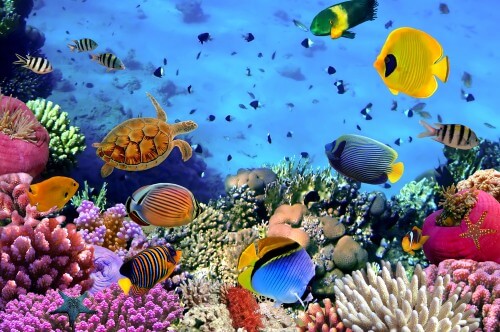Researchers from the program for marine biology and biotechnology at Ben-Gurion University in Eilat, examined what is more important to fish - the habitat or its environment. The research findings may help restore corals in damaged marine environments

Researchers from the program for marine biology and biotechnology at Ben-Gurion University in Eilat, examined what is more important to fish - the habitat or its environment. The study, led by Dr. Omer Polak and Prof. Nadav Shasher, examined whether the composition of a fish society on an artificial bone is typical of the structure of the bone-house, or whether the change in the location of the object will lead to a change in the composition of the fish society in accordance with the habitat.
The results of the research are significant in terms of understanding and the relative importance of the role of the home and the environment in the design of the fish society, but also regarding the ability to restore damaged marine environments, a topic that engages and intrigues researchers and students from the marine program of Ben-Gurion University in Eilat.
"After we moved the artificial objects to their new location, fish began to arrive from the open sea and perhaps also from other artificial objects that were in the area and not from the area covered with seaweed that was around... Later, we saw that the fish society in the copied artificial objects was similar to the society that existed on them when they were around coral reefs... this, despite that the nearest reef was hundreds of meters away from them" reports Dr. Polk.
This means that the habitat is more important than the environment in which it is found. "It seems that fish like a complex habitat," explains Dr. Polk. The results of the study show that it is possible to address local problems, even on a small scale, and bring about localized restoration, without waiting for huge budgets for the restoration of the entire coral reef in the Eilat area.
The investment of artificial objects for the purposes of preserving marine nature is a relatively new phenomenon in the world of science and in the applied world. Dr. Polak's research, as part of his doctoral studies in marine biology in Eilat, focused on understanding the relationship between artificial objects and their environment with a view to examining the ability to restore damaged marine areas and preserve the biological diversity of fish. However, the researchers emphasize, an artificial reef must be well planned and the existence of an artificial reef must not be used as an excuse to throw waste and scrap into the sea or to avoid removing them.
The study was recently published in the scientific journal Environmental Biology of Fishes
